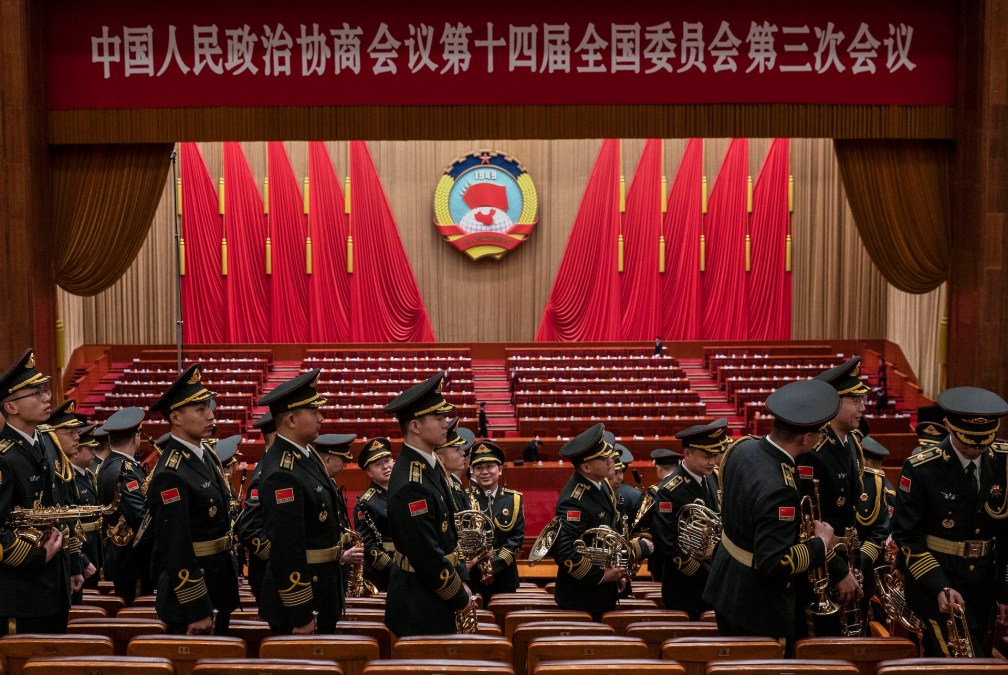Have you ever wondered how deeply intertwined cyberattacks are with international relations? As modern technology evolves, the battles fought online become as significant as traditional warfare. Recently, tensions between the United States and China escalated further with grave accusations leveled by China against the U.S. regarding cyber operations. Let’s break it down.

This image is property of cyberscoop.com.
The Accusations Unraveled
In a bold statement that reverberated through global media, officials in China claimed that U.S. intelligence agencies executed cyberattacks against two military enterprises in China, utilizing vulnerabilities found in Microsoft’s software. This news raises serious questions about cybersecurity practices and international norms.
What is a Zero-Day Vulnerability?
A zero-day vulnerability refers to a software flaw that is unknown to the vendor, meaning that there is no patch or fix available when it is first discovered. This type of vulnerability is particularly dangerous due to its unaddressed nature, allowing hackers to exploit them before developers can respond. In China’s latest allegation, this specific type of vulnerability in Microsoft Exchange was reportedly exploited over a significant period, emphasizing the serious implications of such cybersecurity breaches.
The Claims from the Chinese Cyber Security Association
According to the Cyber Security Association of China, the U.S. utilized a zero-day vulnerability in Microsoft Exchange servers from July 2022 to July 2023. This claim outlines that U.S. agencies gained control of a major Chinese military enterprise’s mail server, taking advantage of it for nearly a year to steal sensitive data. The details provided suggest that this breach was systematic and, if true, reflects a significant escalation in cyber warfare tactics.
Scope and Impact of the Attacks
China’s allegations specify that the attacks target military enterprises with an emphasis on communications and satellite internet sectors, causing substantial risks not only to national security but also to technological integrity. Imagine being a key player in your industry and finding that your communications are compromised for an extended period. The potential fallout from this type of breach can be catastrophic.
Reactions from the U.S. and Microsoft
When these accusations emerged, Microsoft responded by accusing Chinese-linked hackers of exploiting zero-day vulnerabilities within its SharePoint product. This cycle of blame highlights a ‘tit-for-tat’ in cybersecurity, where each nation deflects allegations by citing the others’ cyber operations. How does this serve to decrease or escalate global tensions? It creates a convoluted landscape of mistrust, where each nation feels compelled to bolster its defenses.
U.S. Intelligence Perspectives
Official commentary from U.S. intelligence has remained relatively muted in the face of these allegations, with the Office of the Director of National Intelligence not providing immediate responses. However, the context surrounding U.S. cyber operations suggests a strategic need to investigate foreign capabilities, particularly given increased Chinese cyber aggression.
In a stark admission regarding international conduct, notable figures, including former President Donald Trump, pointed out the existing nature of cyber espionage—a reality that suggests hacking is effectively a tool of statecraft in current international relations.
The Larger Picture: Cyberattacks and Global Politics
These cyber incidents underline more than just technical vulnerabilities; they reflect the intense geopolitical rivalries where cyber capabilities and intelligence become integral tools. For a nation-state, having superior cyber capabilities can mean the difference between maintaining a strategic advantage or facing potential exploitation.
China’s Broader Cybersecurity Landscape
While the focus has been on U.S.-China tensions, it’s important to acknowledge that China itself has been accused of cyber aggression toward numerous countries, prominently including Taiwan. Reports indicated that in 2024 alone, China experienced around 600 foreign-level cyberattacks, showcasing a concern over its sensitivity to perceived threats.
- Targeting: Many of these attacks specifically target critical infrastructure and sensitive military capabilities.
- Response: Responses within cybersecurity circles indicate a need for robust defenses against not just external threats but also internal vulnerabilities.
Understanding the Offensive and Defensive Cyber Postures
Countries today must adopt a defensive posture, continuously monitoring and patching their software while preparing for potential offensive actions if necessary. The strategies surrounding cyber operations have evolved. For instance:
| Strategy | Description |
|---|---|
| Defense | Mitigating threats via patches and continuous system monitoring. |
| Offense | Actively probing vulnerabilities in adversaries’ systems. |
| Countermeasures | Developing robust responses aimed at deterrence. |
This table highlights the duality present in modern cybersecurity tactics, where nations must contend with both protecting their assets and considering retaliatory strikes against perceived aggressors.
The Dark Side of Cyber Operations
While nations might justify cyber operations as crucial for their national security, there exists a dark side. These tactics can potentially undermine trust in technology and international relations. When trust falters, it often leads to increased military readiness and preemptive measures, escalating tensions globally.
Cybersecurity as a Tool for Diplomacy
Conversely, cybersecurity could serve as a medium for diplomacy. International cyber norms and treaties could emerge, fostering cooperative behaviors among powerful nations. The question becomes: can nations prioritize cooperation over conflict in cyberspace, thus paving the way for collective security measures?

This image is property of cyberscoop.com.
What Lies Ahead?
As we navigate this charged environment, it’s clear that both the United States and China are locking horns in a cyber ‘Cold War’. Each action appears to provoke a counteraction, with no clear end in sight.
The Outlook on U.S.-China Relations
- Continued Accusations: Expect ongoing accusations and retaliations as both nations assert their cybersecurity strategies.
- Emerging Technologies: As technology continues to evolve, there may be even more sophisticated methods for both offense and defense.
- Alliances Shifting: Global alliances might be tested as nations observe how these superpowers interact in the cyber domain.
Balancing National Security and International Norms
It’s imperative to strike a balance between national security and respect for international norms. Cyber incidents that escalate can lead to severe repercussions, not only militarily but also economically and politically.
Strengthening Domestic Resilience
Countries should prioritize strengthening their cyber resilience, not merely to stave off attacks but to foster an environment of trust domestically and with other nations. Government agencies and private companies must collaborate, share information, and enhance capabilities to respond to threats effectively.
Conclusion: The Road Ahead in Cybersecurity
Cybersecurity is not just a technical issue; it’s interwoven with political narratives and strategies. You might find it fascinating to understand how these dynamics play out as the world finds itself at the intersection of technology and international relations.
Both the United States and China will likely continue to navigate this complex landscape, where accusations can emerge rapidly and cybersecurity strategies become a pivotal part of national policy. Thus arises an exciting yet concerning future where safeguarding against cyber threats carries implications far beyond the technology domain.
The stakes are high, and what happens next could redefine our understanding of global security in the 21st century. As you consider the implications of these developments, remain aware of how interconnected our world is, particularly in the realm of cyberspace.